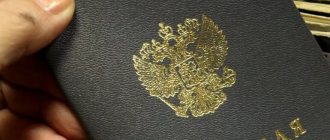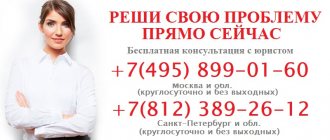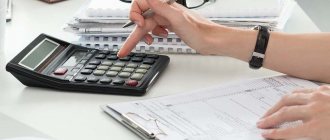Let's imagine the situation. The “simplifier” (organization or entrepreneur - it doesn’t matter) before losing the right to use the designated special regime, managed to work for at least 3 calendar months (the period is important!) and they met the requirement of 2 million rubles. revenue. But then he lost the right to use the simplified tax system (due to non-compliance with the restrictions established by Chapter 26.2 of the Tax Code of the Russian Federation). In such a situation, the entrepreneur is recognized as a payer of income tax and VAT after the fact, as they say, retroactively. In such a situation, can an ex-“simplified” person be exempt from paying VAT retroactively (of course, subject to confirmation of this right)?
Law enforcement practice shows that this is possible. But there are risks, since the procedure for exercising this right in a situation where the taxpayer loses the right to use the “simplified tax”, Art. 145 of the Tax Code of the Russian Federation is not clearly defined.
Before analyzing the conditions for the ex-“simplified” person to exercise the right to apply the VAT exemption retroactively, let’s say a few words about the exemption itself, as well as the conditions and the classic version (provided for by tax rules) of the procedure for obtaining it.
Exemption from VAT on the basis of Art. 145 Tax Code of the Russian Federation.
The right to exemption from the obligations of a VAT payer is enshrined in paragraph 1 of Art. 145 Tax Code of the Russian Federation.
Note: this article does not provide for the possibility of simultaneous application of benefits in the form of the right to exemption from the performance of taxpayer obligations related to the calculation and payment of VAT for one type of activity subject to taxation under the general taxation system, and the calculation and payment of VAT to the budget for other types of activity . This conclusion follows from the Resolution of the Supreme Court of the Russian Federation of November 1, 2018 No. F10-4556/2018 in case No. A23-7792/2017 (upheld by the Ruling of the Supreme Court of the Russian Federation of January 22, 2019 No. 310-KG18-23295).
What does this exemption mean for the taxpayer?
Peculiarities
Each tax system has its own characteristics when exempting from VAT.
In accordance with Chapter 26.2 of the Tax Code of the Russian Federation, a taxpayer has the right to take advantage of the exemption, but only if certain conditions are met when transferring to another tax system.
An exception is this tax when importing goods into the customs territory of Russia. It is precisely this exemption that raises quite a few questions for organizations that pay taxes under the OSNO system.
Partial exemption is applicable for organizations that carry out several types of work. At the same time, they can count on tax exemption for one type of activity. To do this, they must comply with all the requirements specified in the current bill, including providing a zero declaration.
Companies and individual entrepreneurs who pay a single tax are not VAT payers, in accordance with Chapter 21 of the Tax Code of the Russian Federation. An exception is VAT, which is payable in accordance with the Tax Code when importing goods to Russian customs.
If a company operates according to a general scheme, then only part of its operations may be exempt from payment.
In accordance with the Tax Code, medical equipment described in Decree of the Government of the Russian Federation No. 1042 of September 30, 2020 is not subject to taxation.
The rest of the list is entitled to be subject to value added tax.
Benefits of using an exemption.
There are several such obvious advantages.
Firstly, do not pay VAT on transactions in the domestic market for 12 calendar months (clause 4 of the said norm)[1]. In this case, “input” and “import” taxes are not deductible, but are taken into account in the cost of purchased (imported) goods (works and services) (clause 3, clause 2, article 170 of the Tax Code of the Russian Federation).
Secondly, do not report this tax to the tax office. That is, the taxpayer does not need to submit a VAT return in electronic format via TKS channels.
Thirdly, the ability to prepare documents for shipment without indicating VAT on a separate line. That is, on invoices, “exempt” persons make an inscription or stamp “Without tax (VAT)” (Clause 5 of Article 168 of the Tax Code of the Russian Federation). They retain only the obligation to maintain a sales book on the basis of clause 3 of Art. 169 of the Tax Code of the Russian Federation and clauses 1, 3 of the Rules for maintaining a sales book[2].
However, Art. 145 of the Tax Code of the Russian Federation defines not only the right of an economic entity to use the exemption from the obligations of a VAT payer, but also the conditions that must be met for the exemption, as well as the procedural issues associated with its receipt.
Where to start exempting from VAT
This must be done immediately before starting the VAT exemption procedure, that is, in the last tax period.
It should be taken into account that:
- if fixed assets are “under-depreciated”, then VAT must be restored from their residual value;
- If VAT is paid on advances made by buyers, then it can be refunded, but only if the buyers do not object to:
- or terminate the contractual relationship and return the advance in full;
- or add a price change clause to the contract - in this case, you can return the advance VAT.
If the buyer, for some reason, does not want to make changes to the contract, then upon shipment of the goods he needs to be issued an invoice with VAT.
And we must always remember that as soon as the period of VAT exemption begins, it will no longer be possible to deduct VAT paid on previously made advances.
Conditions.
An organization or individual entrepreneur can receive an exemption from the obligations of a VAT payer if the amount of their revenue from the sale of goods (work, services) excluding tax for the 3 previous consecutive calendar months does not exceed a total of 2 million rubles. (Clause 1 of Article 145 of the Tax Code of the Russian Federation).
In short, to apply the exemption, it is necessary to calculate the amount of revenue for the 3 months preceding the month in which it began to be applied. Let us emphasize: “exempt” persons must comply with this limit even after receiving this right. Otherwise, the right to use the designated exemption will be lost (clause 5 of Article 145 of the Tax Code of the Russian Federation).
When determining the amount of revenue and calculating the three-month period, you need to take into account the following nuances.
| Algorithm for calculating revenue | Procedure for calculating the three-month period |
| The procedure for calculating this period is explained in the Letter of the Ministry of Finance of Russia dated 01.08.2018 No. 03-07-14/54111: the three-month period specified in paragraph 1 of Art. 145 of the Tax Code of the Russian Federation, expires on the last day of the calendar month preceding the month from which the right to exemption from the taxpayer’s obligations related to the calculation and payment of VAT will be used |
| |
| – revenue from excisable goods; – revenue from transactions not subject to VAT (exempt from taxation) on the basis of Art. 149 Tax Code of the Russian Federation; – revenue from operations that are not recognized as an object of taxation (clause 2 of Article 146 of the Tax Code of the Russian Federation) or the place of sale of which is not the territory of the Russian Federation (Articles 147, 148 of the Tax Code of the Russian Federation); – the cost of goods (work, services) transferred free of charge (see Letter of the Ministry of Finance of Russia dated 04/06/2016 No. 03‑07‑11/19488); – amounts of received advances (prepayments)** |
* The form and procedure for maintaining this book are approved by Order of the Ministry of Finance of Russia No. 86n, Ministry of Taxes of Russia No. BG-3-04/430 dated 08/13/2002.
** Such payments do not fall under the concept of proceeds from sales within the meaning of Art. 39 of the Tax Code of the Russian Federation and, accordingly, cannot be recognized as revenue for the purposes of Ch. 21 Tax Code of the Russian Federation. In addition, in accounting, advances (prepayments) are not recognized as income (revenue) of the organization (clause 3 of PBU 9/99 “Income of the organization”).
Conditions under which the right to exemption can be exercised
Revenue limit
A company (entrepreneur) may claim the right not to pay VAT if the total amount of revenue from the sale of goods (work, services) for the three calendar months preceding the exemption does not exceed 2,000,000 rubles (excluding VAT).
Please note This rule also applies if there is no revenue at all during this period (letter of the Federal Tax Service of the Russian Federation for Moscow dated September 4, 2006 No. 19-11/077487).
EXAMPLE A trading company plans to take advantage of the right to exemption from VAT from October. Over the previous three months, the company’s revenue from the sale of goods amounted to: • for July - 826,000 rubles. (including VAT – 126,000 rubles); • for August – 708,000 rubles. (including VAT - 108,000 rubles); • for September – 755,200 rubles. (including VAT - 115,200 rubles). Total total revenue for three months excluding taxes: 826,000 - 126,000 + 708,000 - 108,000 + 755,200 - 115,200 = 1,940,000 rubles. Since 1,940,000 < 2,000,000, the company has the right to send a notification to the tax office about the use of the right to exemption from VAT from October.
There is one more condition. It applies to companies (entrepreneurs) that sell excisable goods. The list of such goods is in Article 181 of the Tax Code.
If a company sold only excisable goods during the three months preceding the exemption, then it cannot obtain the right to exemption (clause 2 of Article 145 of the Tax Code of the Russian Federation).
If a company sold both excisable and non-excise goods, then it can receive an exemption from VAT. However, only non-excisable goods do not need to be taxed. To obtain an exemption, a company must keep separate records of sales of excisable and non-excisable goods (letter of the Ministry of Taxes and Taxes of Russia dated May 13, 2004 No. 03-1-08/1191/ [email protected] ).
EXAMPLEAn entrepreneur is engaged in retail trade. The total amount of revenue for three months did not exceed 2,000,000 rubles. The goods that the entrepreneur sells include cigarettes (excise goods). The entrepreneur does not keep separate records of sales of excisable and non-excisable goods. Therefore, he is not entitled to VAT exemption.
Notice of release
If you want to receive a VAT exemption, submit a corresponding notification and documents confirming your right to exemption to the tax office.
The notification looks like this:
Here is the list of required documents:
| For the company | For the entrepreneur |
| extract from the Statement of Financial Results. | extract from the book of income and expenses and business transactions |
| extract from the sales book | |
Firms and entrepreneurs that have switched from the simplified taxation system to the general regime submit a notification and an extract from the income and expenses ledger to the tax office. The same procedure applies to entrepreneurs who pay a single agricultural tax and have switched to a general taxation regime.
All documents must be submitted to the tax office no later than the 20th day of the month from which you want to use the right to exemption. Documents can be sent to the tax office by registered mail. In this case, the documents will be considered submitted to the tax office on the sixth day after sending the registered letter. Therefore, the deadline for sending a registered letter is the 14th of the month from which you want to use the exemption.
Keep in mind: tax authorities cannot deny you the right to exemption from VAT solely because of failure to submit a notification and supporting documents to the inspectorate within the prescribed period. This conclusion is contained in the Resolution of the Plenum of the Supreme Arbitration Court of the Russian Federation dated May 30, 2014 No. 33.
If you have claimed your right to exemption, you may not have to pay VAT for 12 months. However, you cannot refuse to use the exemption during this period.
When exemption does not apply
Also keep in mind that even if you use tax exemption, you will still have to pay VAT in two cases:
- if you import goods into Russia from abroad;
- if you must transfer tax to the budget as a tax agent (in particular, when purchasing goods (work, services) in Russia from a foreign company that is not registered with the tax authorities in Russia, or when renting municipal or state property).
The fact is that the exemption does not apply to these cases (clause 3 of Article 145 of the Tax Code of the Russian Federation).
In addition, if a tax exemption is used by a company that previously paid VAT, a situation may also arise where it will have to pay tax already during the period of validity of the exemption. For more information about this, see the situation “Payment of VAT during the transition period” in this section.
note
Even using the VAT exemption, you will be required, when selling goods (work, services), to issue invoices to customers, as well as keep logs of received and issued invoices, purchase books and sales books.
When issuing invoices to customers, the accountant of a company using VAT exemption makes an entry “Without tax (VAT)”.
How to account for input VAT
The VAT amounts paid to suppliers of goods (works, services) are not deducted by the company using the exemption, but are taken into account in the cost of acquired assets (works, services).
PRIMERZAO Aktiv has been using VAT exemption since October 1. In October of this year, Aktiv purchased a batch of goods from a supplier for 118,000 rubles. (including VAT - 18,000 rubles). In the same month, the goods were sold for 180,000 rubles. Since “Active” enjoys tax exemption, the amount of VAT paid to the supplier is included in the cost of purchased goods. “Active” does not pay VAT on the proceeds from the sale of goods. The Aktiva accountant issued an invoice to the buyer for 180,000 rubles. excluding VAT. Profit from this transaction will be: 180,000 – 118,000 = 62,000 rubles. The Aktiva accountant will make the following entries: DEBIT 60 CREDIT 51 – 118,000 rubles. – money was transferred to the supplier in payment for goods; DEBIT 41 CREDIT 60 – 118,000 rubles. – goods are capitalized on the company’s balance sheet (at the purchase price, including VAT); DEBIT 62 CREDIT 90-1 – 180,000 rubles. – revenue from the sale of goods is reflected; DEBIT 90-2 CREDIT 41 – 118,000 rubles. – the cost of goods sold is written off; DEBIT 90-9 CREDIT 99 – 62,000 rubles. – profit from sales is reflected (based on the results of the reporting month).
note
If an accountant of a company that has received a tax exemption issues an invoice to the buyer with the allocation of VAT, then the company will be forced to pay the amount of tax on this transaction to the budget (clause 5 of Article 173 of the Tax Code of the Russian Federation).
In addition, you will have to submit a return for this tax (despite the fact that, in general, such companies do not file a VAT return).
In this case, the amount of VAT paid to the supplier when purchasing goods cannot be deducted, since the Tax Code does not allow a company that has received a tax exemption to deduct VAT.
PRIMERAO Aktiv received an exemption from VAT from October 1. In October, Aktiv purchased a batch of goods from a supplier for 118,000 rubles. (including VAT - 18,000 rubles). Since Aktiv enjoys tax exemption, the amount of VAT paid to the supplier is included in the cost of goods purchased. In the same month, the goods were sold for 177,000 rubles. In violation of the established procedure, the Aktiva accountant issued an invoice to the buyer for 177,000 rubles, highlighting the tax amount as a separate line - 27,000 rubles. In this case, 27,000 rubles. “Aktiv” will have to pay into the budget. The profit from this transaction will be: 177,000 rubles. – 27,000 rub. – 118,000 rub. = 32,000 rub. The Aktiva accountant will make the following entries in October: DEBIT 60 CREDIT 51 – 118,000 rubles. – money was transferred to the supplier in payment for goods; DEBIT 41 CREDIT 60 – 118,000 rubles. – goods are capitalized on the company’s balance sheet (at the purchase price, including VAT); DEBIT 62 CREDIT 90-1 – 177,000 rubles. – revenue from the sale of goods is reflected; DEBIT 90-2 CREDIT 41 – 118,000 rubles. – the cost of goods sold is written off; DEBIT 90-3 CREDIT 68 subaccount “Calculations for VAT” – 27,000 rubles. – VAT is accrued for payment to the budget; DEBIT 90-9 CREDIT 99 – 32,000 rubles. – profit from sales is reflected (based on the results of the reporting month)
Procedural points.
The right to exemption from VAT is of a declarative nature, therefore, in order to exercise it, it is necessary to submit a notification to the tax authority (clauses 3, 6 of Article 145 of the Tax Code of the Russian Federation) in the form approved by Order of the Ministry of Finance of Russia dated December 26, 2018 No. 286n.
In addition to the notification, it is necessary to submit documents confirming the taxpayer’s right to apply such an exemption (clause 6 of Article 145 of the Tax Code of the Russian Federation):
- for organizations - this is an extract from the balance sheet and sales book (for ex-"simplified" - an extract from KUDiR);
- for entrepreneurs, this is an extract from the sales book and the book of income, expenses and business transactions of the individual entrepreneur.
The taxpayer can submit these documents to the inspectorate in person or send them by registered mail[3] (Clause 7, Article 145).
In paragraph 3 of Art. 145 states that the notification and supporting documents must be submitted to the tax authority at the place of registration no later than the 20th day of the month from which the subject uses the right to exemption.
When you can't get liberation
An organization cannot take advantage of the VAT exemption if:
- revenue excluding VAT from the sale of goods (work, services) for the three previous consecutive months will exceed RUB 2,000,000;
- the organization sells excisable goods and has not organized separate accounting of revenue from the sale of excisable and non-excisable goods.
Exemption from VAT does not apply to the import of goods into Russia. That is, even if you have an exemption from VAT, you will have to pay tax when importing goods (Clause 3, Article 145 of the Tax Code of the Russian Federation).
In addition, organizations using the right to exemption from VAT are not exempt from fulfilling the duties of tax agents to withhold and pay tax to the budget (clause 2 of Article 161 of the Tax Code of the Russian Federation).
"Cherry on the cake."
Clause 5 of Art. 145 of the Tax Code of the Russian Federation establishes negative consequences (expressed in the obligation to restore VAT) only for the case of failure by the taxpayer to provide relevant documents (notifications and documents confirming the legality of exemption from VAT).
Meanwhile, the norms of Ch. 21 of the Tax Code of the Russian Federation does not define the responsibility of the taxpayer (as well as any negative consequences for him) for submitting a notification (with supporting documents) in violation of the 20-day deadline.
This point was noted by the highest arbitrators in paragraph 2 of Resolution No. 33: within the meaning of paragraph 3 of Art. 145 of the Tax Code of the Russian Federation, the taxpayer only informs the Federal Tax Service of his intention to exercise the right to apply the exemption. By virtue of the law, it is possible to notify about this even after the tax exemption begins to apply.
Mention should be made here of Letter No. SD-4-3/ [email protected] , in which Federal Tax Service specialists also recognized the taxpayer’s right to apply an exemption from VAT, regardless of the timeliness of sending the corresponding notification to the Federal Tax Service (similar explanations were previously given department in Letter dated June 29, 2015 No. GD-4-3 / [email protected] ).
Based on the above, local inspectors are obliged to take into account the taxpayer’s statement of the right to apply the VAT exemption retroactively and determine whether he has this right based on the documents submitted by him on the merits.
Regarding the application of exemption from VAT payer obligations, two points should be taken into account:
- The Tax Code does not provide for any liability for violation by taxpayers of the requirements established by paragraphs 3, 6 of Art. 145 Tax Code of the Russian Federation.
- From the systematic interpretation of the provisions of Art. 145 it follows that violation of the deadline for the taxpayer to submit the notice and documents provided for in paragraph 6 of this article and confirming the right to be exempt from fulfilling the taxpayer’s duties is not grounds for refusing to grant the taxpayer this right.
It is noteworthy that courts have long been practicing this approach when resolving disputes regarding the retroactive application of preferences provided for in Art. 145 Tax Code of the Russian Federation. For example, the AS SZO in the Resolution of January 18, 2018 No. F07-15338/2017 in case No. A66-11862/2016[4] indicated: if the applicant actually used the exemption from the duties of a VAT payer, then provided that it meets the criterion established by paragraph 1 tbsp. 145 of the Tax Code of the Russian Federation, he cannot be denied the right to such release. Consequently, entities that actually used the exemption from VAT payer obligations in the relevant tax periods cannot be denied such a right only due to failure to submit notification and supporting documents within the prescribed period (see also the definitions of the RF Armed Forces dated January 19, 2018 No. 305-KG17- 14988 in case No. A41-17865/2016, dated 07/03/2018 No. 304-KG18-2570 in case No. A70-907/2017).
Taking into account the above, as well as the notification mechanism provided for in Art. 145 of the Tax Code of the Russian Federation (according to which a notification is submitted after the taxpayer has actually exercised the right to this exemption), it turns out that ex-“simplified people” can declare their right to apply the exemption from VAT payer obligations retroactively. But this is in theory. How are things going in practice? Let's start with the explanations of the officials.
How an application for VAT exemption is considered in court
Currently, the legal position of the Supreme Arbitration Court of the Russian Federation is actively used by lower courts (resolutions of the North-Western Court of 18.03.15 No. A26-3492/2014, West Siberian of 28.11.14 No. A75-2520/2014, Ural of 18.02.15 No. F09- 675/15 districts, Twelfth AAS dated 08/04/15 No. A57-347/2015). Officials also support her (letters from the Ministry of Finance of Russia dated 06.16.15 No. 03-07-14/34600, dated 07.08.15 No. 03-07-14/39360, Federal Tax Service of Russia dated 03.16.15 No. GD-4-3/ [email protected ] ). General conclusion: the taxpayer can submit the notification and supporting documents to the tax office even late. If the taxpayer forgot to do this himself, he has the right to present them during a tax audit, when he is told that he has an obligation to pay VAT. But this does not mean that it is not necessary to submit a notice of VAT exemption. If the tax authority does not receive a notification at all, this indicates that there are no legal grounds for exempting the applicant from paying VAT. This position is reflected in the decisions of the Volga Region Federal Antimonopoly Service dated January 27, 2014 No. A12-21953/2011 and the West Siberian Federal Antimonopoly Service dated February 17, 2015 No. F04-15085/2015 districts.
VAT on electronic services provided via the Internet (Google Tax)
Position of officials.
You should pay attention to the Letter of the Federal Tax Service of Russia dated September 14, 2015 No. GD-3-3/ [email protected] It states, in particular, that an entrepreneur who has lost the right to apply the PSNO due to failure to comply with the conditions for the application of this taxation regime is not may be denied the right to receive an exemption from VAT for the period in which he lost the right to use the PSNO (that is, retroactively) (of course, if his revenue for the three previous calendar months did not exceed 2 million rubles).
A similar conclusion was made in the Letter of the Ministry of Finance of Russia dated March 18, 2015 No. 03‑07‑15/14580[5].
Despite the fact that in the above letters the officials analyzed the consequences of the loss of the right to use another special regime - the PSNO, we believe that the approach of the officials outlined in them is also applicable for former “simplified people” (the author can find similar explanations addressed to ex-“simplified people” failed). After all, the use of each of the named regimes (USNO and PSNO) is not unconditional; in order to use them, taxpayers must comply with a number of restrictions. And the consequence of losing the right to use them is one thing - the transition to OSNO (with payment of VAT and income tax).
But there is another important nuance here (which, by the way, is not covered in the letters of official bodies). Taxpayers often learn about the loss of the right to use the simplified tax system only during (or as a result of) tax control activities. In this regard, at present, the more pressing issue is not about the application of exemption from VAT payer obligations as such (thanks to the legal position of the Plenum of the Supreme Arbitration Court from paragraph 2 of Resolution No. 33, this issue is resolved in favor of taxpayers), but about the moment of notification of the Federal Tax Service about the application of this release (before the inspection decision comes into force or after). In practice, tax authorities often deny the right to apply the exemption under Art. 145 of the Tax Code of the Russian Federation in situations where a notification about it is submitted after the decision on the results of the inspection has entered into force. What is the position of the arbitrators on this issue?
Free transfer of goods
Situation: when calculating the revenue limit for VAT exemption, is it necessary to take into account the cost of donated goods (work, services)?
No no need.
When determining the limit, proceeds from the sale of goods (work, services) are used (clause 1 of Article 145 of the Tax Code of the Russian Federation). In this case, revenue refers to income in cash and in kind received by an organization from the sale of goods (work, services) (clause 2 of Article 153 of the Tax Code of the Russian Federation). With the gratuitous transfer of income, the organization does not generate income (Article 41 of the Tax Code of the Russian Federation).
Thus, despite the fact that the gratuitous transfer of goods (work, services) is recognized as an object of taxation (paragraph 2, subparagraph 1, paragraph 1 of Article 146 of the Tax Code of the Russian Federation), the organization does not receive any revenue from this operation. Therefore, when calculating the limit for VAT exemption, do not take into account the cost of donated goods (work, services).
Similar clarifications are contained in the letter of the Ministry of Finance of Russia dated September 30, 2013 No. 03-07-15/40261.
Example of calculating revenue for using VAT exemption
LLC "Torgovaya" sells non-excisable goods. From May 1, the organization decided to take advantage of the right to exemption from VAT.
To do this, the accountant determined the revenue from the sale of goods for the period February–April. At the same time, the accountant did not include advances received from buyers in the calculation. Revenue excluding VAT for the specified period amounted to:
- from the sale of fixed assets – 50,000 rubles;
- from the sale of non-excisable goods – RUB 1,450,000.
The total amount of revenue that is taken into account when determining the right to exemption from VAT is 1,500,000 rubles. (RUB 50,000 + RUB 1,450,000). It does not exceed 2,000,000 rubles. Therefore, from May 1, Hermes can take advantage of the exemption and not pay VAT on the sale of non-excise goods and other property not subject to excise taxes (fixed assets, materials, etc.).
Situations from practice.
An illustrative example is the Resolution of the Supreme Court of the Supreme Soviet of July 18, 2018 No. F02-2952/2018 in case No. A58-4357/2017. In this case, a dispute was considered about the legality of the ex-“simplified” application of exemption under Art. 145 of the Tax Code of the Russian Federation, the application of which he declared to the court (that is, after the decision came into force based on the results of the inspection and consideration of the appeal against it by the Federal Tax Service).
Briefly about the plot of the case. An audit was carried out against the company for 2013 – 2020, during which it was established that it had lost the right to use the simplified tax system from April 1, 2013 (note that the company did not dispute this point). Additional taxes payable under OSNO (in particular, VAT) were assessed. The decision on the inspection was made on December 28, 2016.
The decision of the Federal Tax Service was appealed to the Federal Tax Service, but based on the results of consideration of the complaint (04/07/2017), additional charges were revised only in terms of income tax, not VAT (this is important!). In other words, when appealing the results of a tax audit to a higher tax authority, the company did not declare (!) its right to apply the exemption.
Notification of application of exemption under Art. 145 of the Tax Code of the Russian Federation was sent by the company only on November 7, 2017, that is, after filing an application with the court. The Federal Tax Service, in turn, in a letter dated November 24, 2017, informed her of the refusal to apply the said exemption due to missing the deadline for filing a notification and failure to provide supporting documents.
It is clear that in this case the tax authorities resisted (but unsuccessfully!) to the last. They insisted that the company should have declared its right in the manner provided for in Art. 138 of the Tax Code of the Russian Federation (that is, by appealing the notifications dated November 24, 2017 about the company’s refusal to be exempt from VAT).
The courts (all instances) came to the following conclusion: the fact that the company did not declare the application of Art. 145 of the Tax Code of the Russian Federation should not deprive her of the corresponding right.
In support of their conclusion, the arbitrators referred to the position of the Presidium of the Supreme Arbitration Court, set out in Resolution No. 3365/13 dated September 24, 2013 in case No. A52-1669/2012. Let us remind you: the Presidium of the Supreme Arbitration Court considered a case when the taxpayer became aware of the need to pay VAT based on the results of tax control measures carried out by the inspectorate. In this case, the Tax Code does not provide for the procedure for exercising the right to exemption from VAT. However, the absence of an established procedure, according to the senior arbitrators, does not mean that this right cannot be exercised.
In addition, the AS VSO emphasized: the acceptance by the courts of the taxpayer’s application regarding his right to exemption, provided for in paragraph 1 of Art. 145 of the Tax Code of the Russian Federation, does not contradict the legal approaches to the issue of providing additional evidence to justify the illegality of the decision of the tax authority, set out in the Determination of the Constitutional Court of the Russian Federation dated July 12, 2006 No. 267-O, paragraph 78 of the Resolution of the Plenum of the Supreme Arbitration Court of the Russian Federation dated July 30, 2013 No. 57.
It is noteworthy that the specified positive decision was made by the VSO AS in a situation where the company’s loss of the right to use the simplified tax system occurred due to the actions of its founder, who transferred 100% of his share to two legal entities (70 and 30%). That is, as a result of the company’s failure to comply with the requirements of paragraphs. 14 clause 3 art. 346.12 of the Tax Code of the Russian Federation (the consequences of which were obviously known to her), and not the re-qualification by the Federal Tax Service of the existing legal relations. Consequently, there was no talk of any honest mistake on the part of the taxpayer (which was emphasized in the Resolution of the Presidium of the Supreme Arbitration Court of the Russian Federation No. 3365/13) in case No. A58-4357/2017. Nevertheless, the arbitrators considered it possible to broadly interpret this position in relation to the dispute under consideration, emphasizing that their approach as a whole (!) is consistent with the legal position from the Resolution of the Presidium of the Supreme Arbitration Court of the Russian Federation No. 3365/13.
We believe that if in this case the company had declared its right to apply an exemption from VAT payer obligations during control activities, it most likely would have avoided litigation. That is, the safest option for asserting your rights is to submit the appropriate notification before the decision on the results of the inspection comes into force.
Risks associated with the submission of an ex-“simplified” application for the right to apply for an exemption under Art. 145 of the Tax Code of the Russian Federation only in court, in the opinion of the author, are justified in the event that the person being inspected challenges the re-qualification by the Federal Tax Service Inspectorate of the existing relationship, which resulted in the loss of the right to use the simplified tax system. After all, a person’s submission of the indicated notification during a tax audit or at the stage of appealing its results to a higher tax authority would mean agreement with the conclusions of the tax authorities. In such cases, what is important for judges is the very fact of the application for the use of the exemption, and at the time of filing the notification about it (see, for example, Resolution of the Supreme Court of Ukraine dated February 12, 2016 No. F09-11894/15 in case No. A50-7406/2015).
Grounds for receiving benefits
Exemption from the tax burden is possible only for a list of entrepreneurs who meet certain criteria within the framework of legislation introduced into the Tax Code of the Russian Federation in 2020 and amended in 2020.
Important: such benefits do not apply to medical and pension contributions.
The main criteria for obtaining a grace period are the turnover of the entrepreneur or company.
For them to become the basis, it is necessary to calculate the revenue for 3 consecutive months, and the total amount must be within 2 million rubles.
It is important:
- Take into account the entire turnover of excise and non-excise goods.
- Non-excise goods are not subject to the required type of tax.
- Those entrepreneurs who trade exclusively in excisable goods can also be freed from the burden:
- Beer;
- Alcohol;
- Tobacco;
- Gasoline;
- Passenger cars.
Obtaining this exemption is available to entrepreneurs who have worked for the last 3 months and had a turnover.
Also, newly created companies with a limitation date of 12/31/2020 are exempt from paying taxes for up to 2 years, starting from the quarter in which the certificate was received.
What is VAT exemption and what laws it is regulated by – see this video tutorial:
https://www.youtube.com/watch?v=9-9pEBC5kgs
After VAT exemption, you must report!!!
If, for example, on March 31, 2015, your 12 months of VAT exemption under Art. 145 of the Tax Code, then no later than April 20, submit to your inspection extracts from:
- balance sheet indicating revenue for the entire period of exemption (from the book of income and expenses - for individual entrepreneurs);
- sales books for the entire period of release.
This is done so that the Federal Tax Service knows that you legally used the VAT exemption. If you do not submit these documents at all, it will be considered that you have lost the right to VAT exemption from the first month of its application!!! Then the VAT for the past 12 months will have to be restored and transferred to the budget with the payment of penalties and fines (clause 5 of Article 145 of the Tax Code).
During the same period, you must inform the tax authorities whether you will use the exemption for the next 12 months (starting from April in the example above) or refuse it. There is no mandatory form; you can take as a basis the form of notification of the use of the right to exemption (approved by Order of the Ministry of Taxes dated 04.07.







